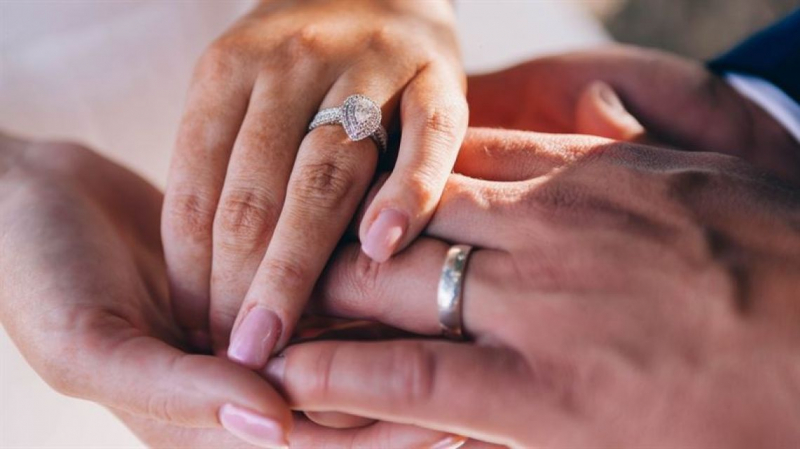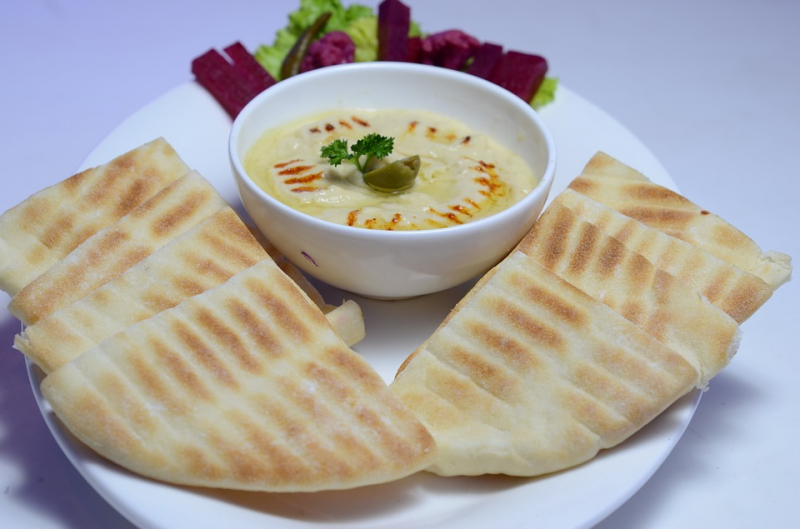Top 8 Kuwait Culture, Customs, and Etiquette
Kuwait sits happily at the top left of the Persian Gulf, and much of its economy is based on abundant oil supplies. Its neighbors include Iraq, Iran, and Saudi ... read more...Arabia, but one of its closest friends is the United States. Part of this Emirate is known for having the world's driest and most unforgiving desert. Kuwait has a distinct Arabic flavor, and with its culture, traditions, and history, it can be an enthralling destination for visitors. Here is a list of Kuwaiti culture, customs, and etiquette.
-
The costumes and garments worn by Kuwaitis today show the difference between the past and the present. Nowadays, both men and women wear western-style clothing. These outfits are no longer limited to foreign workers in Kuwait.
Kuwaitis, on the other hand, understand the significance of preserving their national customs as a symbol of national identity. As a result, men prefer to dress in Kuwaiti traditional clothing, which is more comfortable than western clothing. It has also been observed that Kuwaiti women prefer to wear Western clothing where they can enjoy a wide variety of women's costumes. However, Kuwaiti women maintained their traditional costumes by wearing long dresses, veils, and cloaks.
This variation reflects personal preference, current fashion, and traditions. When a Kuwaiti woman goes to work, she usually dresses in western attire. She dresses traditionally when she returns home and visits her neighbors and relatives. When women reach a certain age, they may choose to dress in traditional attire.

yasmall.ae 
gulfnews.com -
Marriage has always been regarded as a significant event in families. It is usually expensive. Marriage used to be a way for families of similar social and financial statuses and religious beliefs to strengthen their bonds. Rather than the bride or groom, the family used to select the partner. When it is difficult to find a suitable partner among family members, a matchmaker can help. When a suitable girl was found, the matchmaker would notify the groom's family. After the groom's family agreed, the matchmaker would notify the bride's family. A date for a meeting is set after both families agree.
During the engagement period, the fiancée was not allowed to leave the house or meet anybody. The father of the groom would give his son's fiancée a sum of money to buy a wedding gift. The engagement period is not fixed; however, it usually lasts for one month. The wedding party is, usually, given in large public halls or in hotels. A party is given for just men to congratulate the groom and another separate party is given for women to sing and celebrate.
On the wedding night, the groom would walk from his house to his wife's, accompanied by his father, uncles, relatives, and neighbors. When he arrived at the bride's home, he would be greeted by songstresses. A "Jalwa" party for the bride was sometimes held in her family's home. The bride would wear a green gown and sit on a special seat in the "Jalwa." A green silk scarf would be draped over her. The bride would then be carried in her seat to the room where the groom is waiting.

easyweddingkuwait.com 
pinterest.com -
Meeting someone from Kuwait is different from meeting someone from America. Here, people are greeted by handshakes, not hugs. An air kiss on the cheek as one would give a close friend is a good way to begin the conversation. In Kuwait, the way you shake someone’s hand depends on the status of your relationship with that person.
The upper hand should lead the lower hand unless you are shaking with women who are older than you. It is proper etiquette to shake hands with everyone in your party, or just the men in business situations.
When greeting sofmeone for the first time, it is best to give your name and a pleasantry. A simple “nice to meet you”, will suffice. Don’t be surprised if you’re asked any combination of the following questions: " Where are you from?", " How do you like Kuwait?", "How old are you?", "How much money do you make?".
If you have been invited to a Kuwaiti’s home as a guest, hand over a package wrapped in cloth and have the gift presented to your host. When entering and leaving a home, it is best to bring a small bouquet of flowers to your hostess. Just like how to shake hands, it is necessary to remove your shoes at the door.

cudoo.com 
santaferelo.com -
In Kuwait, people use spoons, forks, and knives, if necessary, or no utensils at all. Since the spoon is more important than the fork, if you are right-handed, keep the spoon in the right hand, and put it down to switch to the fork if and when you need it. Never use your left hand for eating, especially if you are eating directly with your hands.
Kuwaitis make a show of always eating everything that they have been served. No matter how bad the food may be, you should try to eat everything. It is considered impolite to ask for a doggy bag. If you find that the food has appeared to have been in the microwave for too long, make sure to thank your host.
It is possible that men and women will be asked to dine separately. If men and women dine together, women are asked not to directly touch food served to a Muslim male, except those who are her immediate relatives. The most important person is seated in the center of the table, with the second most important person, or the honored guest, seated next to the head of the table.

davidsbeenhere.com 
hilitehomes.com -
Many customs that may not seem important for business relations, actually have a big impact on your business interactions if you are not familiar with them. For instance, alcohol is strictly forbidden in Kuwait. It is vital to have this in mind especially if you attend business dinners and parties. Whether you are doing business with small start-ups or large companies such as logistics in Kuwait, always bear local customs in mind. When inviting your partners from Kuwait to dinner, make sure you inform them a couple of days in advance.
Socializing is an integral part of business meetings. As a conversation starter, you can talk about business or family. Handing out business cards is also advisable, especially if they are bilingual. Distribute them to all your business partners, handing them over with your right hand. As for gifts, they are desirable, yet not mandatory. Bear in mind that decision-making and negotiations can take a long time, as Kuwaiti businessmen take things slowly and do not operate on a whim.
Once you learn all the key features of the business culture in Kuwait, your social skills, as well as business relations, will improve to a great extent. Your business partners will notice the effort you put into learning about their culture and will appreciate it very much. Also, be mindful of working days, avoid scheduling meetings on Friday, learn about religious holidays, eating and drinking habits, and always show respect towards your partners. Your Kuwaiti business partners will be generous and hospitable hosts, as well as excellent negotiators and businessmen.

exportiamo.com 
expatica.com -
Kuwaiti homes typically have one hall. However, wealthy families designate a separate hall or a single room on one side of the house as the "Al-Diwaniya." This room or hall is separated from the rest of the house. It is a gathering place for guests, neighbors, and friends to discuss current events and exchange ideas in their spare time. The diwaniya's main doors are kept open throughout the day. Along the door sides, more seats are set for passers-by.
Diwaniya in Kuwait has preserved its importance in social, political, and economic life. Today, diwaniya is considered of the important social institutes that play an influential role in the democratic and parliamentary life. It became a referential indicator and place where many decisions were made. The general atmosphere of diwaniyas became similar to that of social clubs, cultural and literary forums and political salons. Some of these modern diwaniyas are equipped with television sets, radios, satellite dishes, computers and phones.

concrete-kw.com 
archello.com -
Kuwait, unlike most other Middle Eastern countries, tolerates other religions besides Islam. Although Muslims constitute the vast majority of Kuwaiti nationals, Christians, Hindus, Buddhists, and Jews also reside in the country. Muslims outnumber all other religions in the country. However, just because Muslims account for 85% of the population does not mean they are a solid bloc. Sunni Muslims account for 70% of the 85% of Muslims, while Shi'a Muslims account for 30%. Tensions between Sunni and Shi'a had flared up here and there, but nothing compared to the Iran-Iraq War.
In comparison to other Arab countries, Kuwait has a sizable Christian population. Catholics account for approximately 140,000 people in Kuwait, or 6% of the population. Protestants have a 50,000 strong following, accounting for 2.14% of the total population. The Coptic Orthodox Church has a significant presence in the country, with 60,000 Kuwaitis belonging to this branch of Christianity.
There are also groups of the Armenian Orthodox Church, the Greek Orthodox Church, and the Seventh-day Adventists, but each has fewer than 5,000 members. Christians are not permitted by law to become Kuwaiti citizens, even through naturalization, but there are approximately 1,000 Kuwaiti citizens who are officially documented as Christian.
Kuwait is considered an open country, so it is not surprising to find people who practice religions other than Islam or Christianity, such as Hindus, Buddhists, and Jews, who are usually migrant workers in Kuwait. Although Kuwait has a tolerance policy toward other religions, Muslims dislike it when other religions attempt to convert Muslims to other non-adherents of Islam.

army.mil 
world-adventurer.com -
If you are visiting Kuwait and meeting with business contacts, you should bring gifts with you. A souvenir from your own country that your contact cannot buy in Kuwait is a good gift. Picture books, indigenous crafts, and anything made in your own country are all acceptable. If you can connect your company's focus to your gift, that's even better. You can give the gift at the start or end of your visit. It makes no difference whether you make your gift public or private.
Flowers are also acceptable as a present. There are no bad luck numbers, so there are no limits to how much of anything you can give. Magazines, alcohol, weapons, and drugs are inappropriate gifts. These are, in fact, poor choices anywhere in the world. If your contact has children, it's a good idea to include a small token toy or an age-appropriate gift for them. If a man must give a woman a gift, he should say it is from his wife, mother, sister, or other female relative. Gifts may be exchanged for birthdays, Ramadan, Eid, Hajj, and other celebratory occasions by extended family or very close friends, and gifts are not opened when received.

etiquetteschoolofamerica.com 
quinnsmercantile.com






























